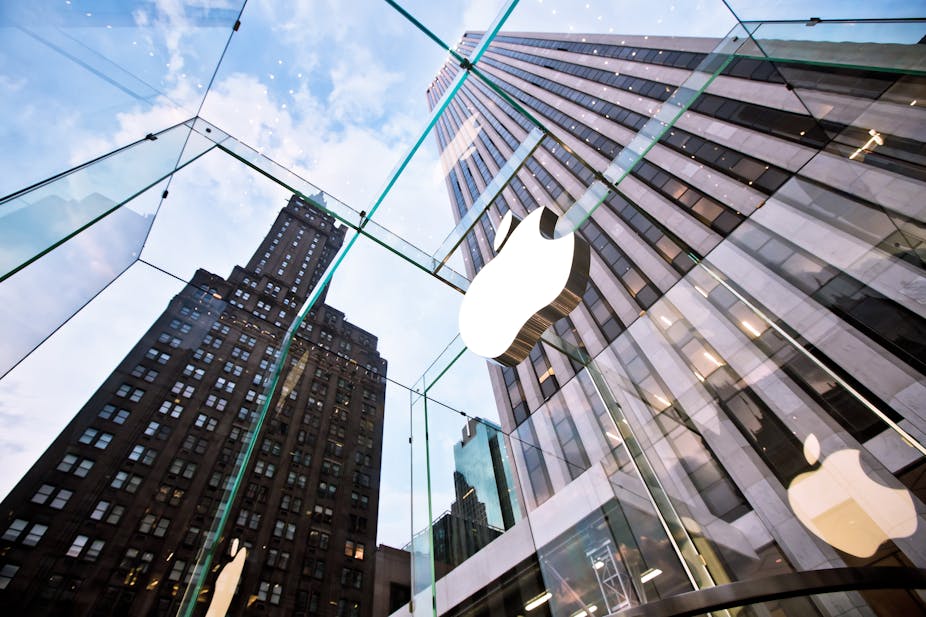The latest round of quarterly results have recently come out and the likes of Apple and Boeing have announced bumper profits. Others such as Sainsbury’s and Samsung have not fared so well. So what is it that makes some big multinational corporations so successful? One answer can be found in their ability to control networks.
The global economy is made up of a series of networks that link customers with providers from all corners of the world. These networks consist of chains of linked corporations that bring these products to our doorsteps – from coffee growers in Columbia through logistics companies to the coffee burner at Nestle and the shop around the corner. Once companies have gained a strong position in these networks, they can then enhance and modify them to suit their business.
Companies that succeed position themselves at the centre of these networks and then manipulate their structure and foundations. Mostly, entrepreneurship rests on three forms of networking and network building: controlling the network they are part of, bridging it with others and creating new one.
Gaining control
Good entrepreneurs seek to occupy positions of control and power in the economic networks in which they operate. They do so by occupying the profitable “middleman” position between producers and customers in the networks that make up our global economy.
These middleman positions are very profitable, based on the control they can exert over the trade flows in their network. Companies can build and maintain this position through tactically acquiring competitors – this explains the numerous mergers and takeovers that have taken place over the past decade. Acquisition strategies by Apple, Facebook and Google show how mergers and takeovers can also be used to pre-emptively counter the emergence of any potential competitor.
The importance of these middleman positions explains as well how companies exercise control over trade conditions in their own supply chain networks. Imposing strict costing on suppliers might cause exploitative work conditions in the plants in which many of the company’s products are produced. But this enables them to keep their costs to a minimum.
Retail giants such as Walmart, Amazon and Tesco are well known for exercising close control of their supply chains and for imposing trade conditions on their suppliers that allows them to operate at lower costs than their competitors. The same holds for Apple, which outsources the production of its devices to giant corporations such as Foxconn in China. This allows Apple to operate at much lower costs, increasing its profit margin.

Finally, positioning your company in the networks through relationships with the right partners results in more control and power to affect the business environment. Historical entrepreneurs such as John D Rockefeller were masters of developing these strategies. Rockefeller built a controlling position in the oil market at the end of the 19th century by procuring competing oil producers in the US and to integrating them into his Standard Oil corporation.
Bridging networks
Successful companies are adept at bridging their network with others in the global economy by exploiting things they have in common. As Ronald Burt explained in his “structural holes” theory, people or companies that can connect across different groups can be more creative and innovative.
Son Apple is able to tie different products and activities into comprehensive packages of services to their customers. Instead of just producing a personal computer or its operating software, Apple pioneered a vision of delivering the whole package of hardware and software to its customers – with great care given to design too. Although in the 1980s and 1990s this strategy was less effective and Microsoft was the more successful company, Steve Jobs’s persistence in following his vision ultimately succeeded. Indeed, Apple’s vision has become the most successful in the 21st century, since this approach is anchored in the networked nature of our global economy.
Creating new networks
The most successful corporations are able to create new networks through an innovative vision that executes a business strategy that fits with the prevailing philosophy of life. Apple is again the most prominent example of this aspect of entrepreneurship since it sells a world view in which hardware devices are linked with providing content in a beautiful design. Apple gets us communicating with friends through social networks, listening to music, making and modifying photographs, playing games and “looking cool” in a single vision of what a successful 21st century person aspires to.
Apple created new economic networks through the introduction of iTunes, their App Store, iPods, iPhones and iPads, resulting in a world view that people bought into. The latest additions to these services are the iCloud storage service and Apple Watch, which can communicate information of one’s body and health status to other devices. Then there’s Apple Pay, which will enable customers to increasingly control their finances through their Apple devices.
Although proposed and pioneered by others, it is Apple’s total vision of what a successful 21st century life should be that enables them to reap the profits from their products and make us “addicted” to them.
It is the success of Apple in this third aspect of entrepreneurship in a network economy that sets the company apart from its competitors, and whose lead aspiring businesses should follow.

